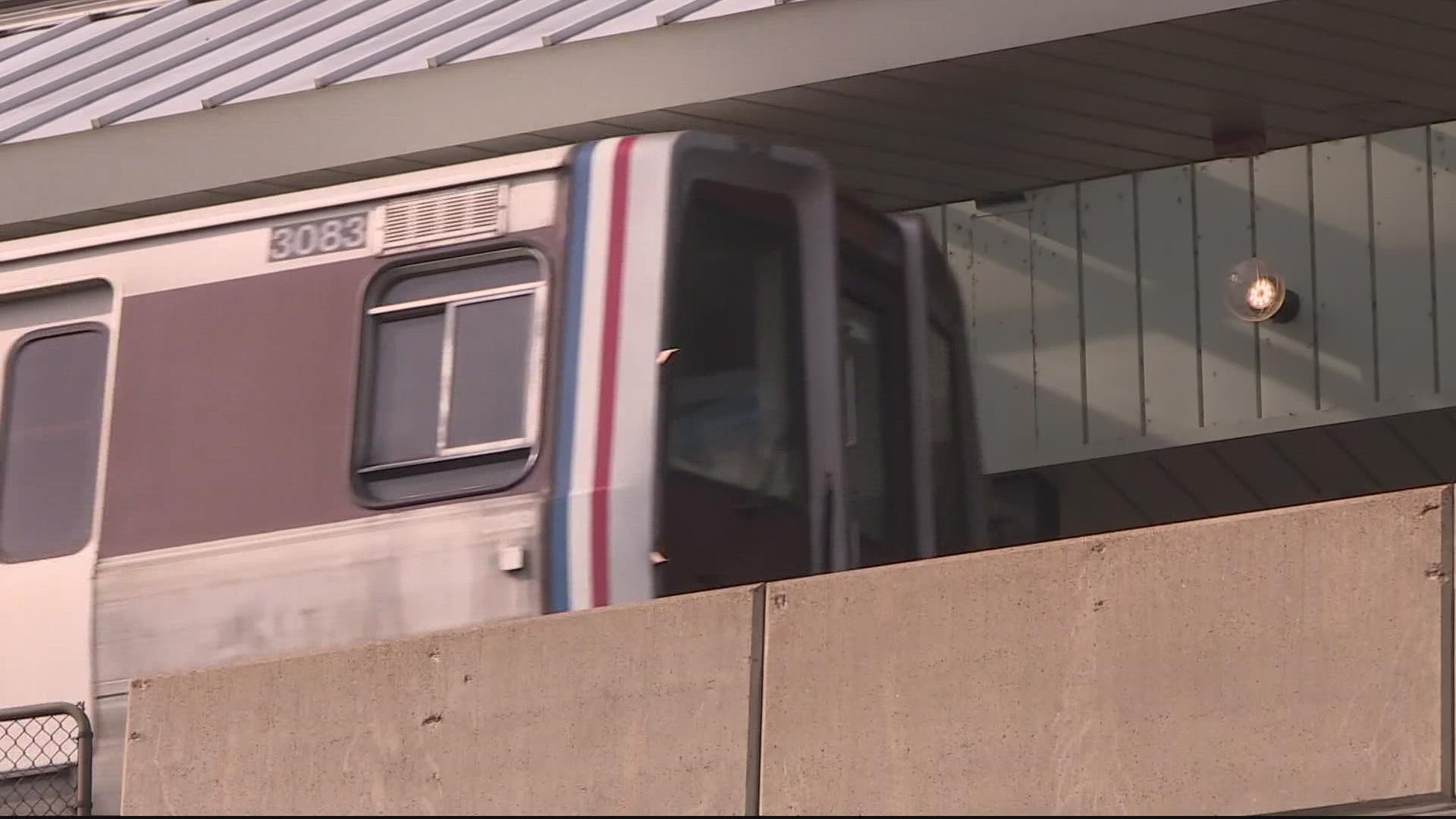WASHINGTON — Editor's Note: The video above originally aired on May 17.
Metro took a big step towards restoring its 7000-series railcars to service by installing the first automatic inspection system to digitally test wheelsets in real time. The cars, representing 60% of Metro's total fleet, have been out of service since the derailment of a Blue Line railcar in October 2021.
Metro has been tight-lipped about a final date on the return of the railcars, but in a press release Thursday, the agency said this latest step puts Metro "on track" to restore cars this summer.
"With the first installation now complete, engineers will begin configuration, testing, and commissioning of the system," Metro said in its release.
The Oct. 12 derailment forced 200 people to be evacuated from the trains near Arlington Cemetery, leading to a safety investigation by the National Transportation Safety Board. NTSB said the incident could have been "catastrophic" and asked Metro to pull the 7000-series cars from operation.
Investigation into the cause of the derailment is ongoing and no final cause of the derailment has been identified.
"To date, the investigation has found no evidence of failures related to maintenance or manufacturing of the equipment," Metro said in its release. "Experts are .... conducting spin tests and ultrasonic tests that look at vibration and wheel performance at various speeds and conditions to determine what combination of issues have to be addressed."
As part of the investigation, Metro reviewed its return to service plan with the Washington Metrorail Safety Commission (WMSC), including wheel inspection procedures and new trainings for Metro staff.
The announcement comes amid a series of leadership shuffles within the agency, including the May 10 announcement of new CEO/GM Randy Clarke and the sudden early retirement of his predecessor, Paul Wiedefeld, who was slated to leave in June but announced his effective-immediately resignation on May 16.
"I would hope this new GM will get safety as the number one priority," said Rep. Gerry Connolly, (D-Virginia). "It's key to winning back public confidence ... and it's key to returning Metro to some standard that starts to approach excellence."
The day before Wiedefeld's announcement, Metro admitted it had fallen years behind on getting train operators re-certified, leading to 72 train operators being pulled from service, causing additional service delays on Green and Yellow Lines.
"Elements of Metrorail have a culture that accepts noncompliance with written rules and procedures," WMSC Spokesman Max Smith said. "This is not the operators' fault at all. This is the managers' responsibility to make sure [recertification] happens.
Finally, on Tuesday, WSMC ordered a number of worksites to be shut down following safety protocol breaches where workers were still on the tracks when the third rail was re-energized.
"Luckily no one was hurt," Smith said. "But every time you bypass these safety procedures, you're putting these people who are out there...at risk of serious injury or death."
Metro also recently announced they would introduce a new series of railcars: the 8000-series. On March 21, manufacturer Hitachi Rail said they planned to build the series in a $70-million factory in Washington County, Maryland, creating 460 new full-time jobs and sustaining 1,300 more jobs.
Hitachi Rail said in a statement that the base order of the new cars will “increase reliability, offer modern onboard technology and an improved passenger experience.”
Officials say that the new 8000-series Metro trains will have:
- Digital screens
- Onboard Wifi
- HD security cameras
- Improved ventilation systems
- Strict cybersecurity requirements
- Wider aisles and more space between seats
- Heated floors
- Improved regenerative braking
Sign up for the Get Up DC newsletter: Your forecast. Your commute. Your news.
Sign up for the Capitol Breach email newsletter, delivering the latest breaking news and a roundup of the investigation into the Capitol Riots on January 6, 2021.

